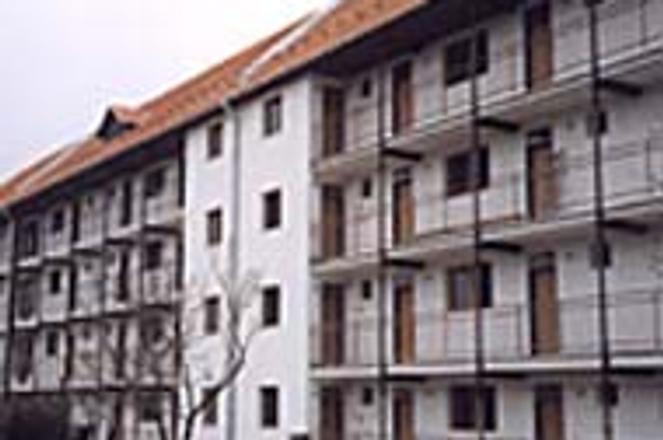Archive of articles - August 2000
If you desire to read an old article, use the search bar or select the publication date.
Telecom services in a global economy
Globalisation is changing the way business is done and customers are served in every industry sector. Telecommunications services have been spearheading this development.The delivery of global network infrastructures and sophisticated communication applications is a prerequisite for multinational companies operating worldwide through the exchange of data, the use of voice and videoconferencing tools, or accessing databases.Put simply, globalisation requires a company to be everywhere on the globe at the same time, faster, better and more customer-focused than anyone else. For those who manage to bridge the gap between high-level global coordination and local requirements, the rewards are tremendous. The alternative is to remain a niche player or a local business with few prospects for expansion.
Proposed levy hike angers employers
Employers reacted angrily August 22 when the Finance Ministry announced a proposal to raise levies paid towards insurance by 0.5%. Under the proposal, payments by employees into the social insurance scheme would rise as of the beginning of the next year, and Finance Minister Brigita Schmögnerová has said that employees should bear a greater portion of the increased levy than the employer.However, Association of Employers (AZZZ) representatives said that any increase forced on employers would be unacceptable and that the government had broken a pledge when it took power in 1998 to lower insurnace payments and improve the business environment."Total levies constantly rise, and further increases could significantly harm the competitiveness of Slovak businessmen," František Bruckmayer of the AZZZ told the SITA news agency. He added that even if the proposal were approved, AZZZ chiefs would fight it as members of the tripartite commission, an advisory body composed of government, business and labour representatives. The insurance proposal would need the support of the commission to be passed.
Information technology: The fear is gone, but ignorance remains
A Slovak sociologist laughed as he remembered his first experience of computers in communist Czechoslovakia. "It was 1987, and a friend and I had been inducted to the military to do our army service. My friend brought along this really ancient PC which could barely perform the most basic word editing functions. The communists told him to get it off the base, perhaps because they were afraid he would use it for espionage. No one really seemed to know what it was."Over a decade later, the current government has made information technology one of its highest priorities. But progress remains slow, and one still gets the feeling that the country's leaders still have not grasped the full import of equipping people with IT skills. The distrust has vanished, but some of the ignorance remains.Not that the Dzurinda government inherited anything resembling an IT programme from its predecessor. Until 1996 at least, the engine of IT growth in this country was the academic sector, which was never a friend of the Mečiar government. Given that IT experts then, even more than now, tended to be university educated Bratislava types, it was easy for the administration to brand them and the Internet per se as 'anti-Slovak'. Responsibility for society's IT needs was passed from the Telecom Ministry to the Statistics Office, and then to the
Around Slovakia
Romany mother dies after attackGirl dies from mushroom poisoningPolice seize record amount of heroinHottest August day ever hits HurbanovoNew beer-drinking records set
Business Briefs
Deutsche puts Hoehmann in top spot at STPostive trade development continues in JulyBudget revenues a surprise for January-JulyPublic transport unions head for strike
Drought relief funds displease farmers
Farmers have hit out at what they say is the paltry compensation they will receive after a spring drought devastated this year's cereal crop, slashing harvests to just 50% of their annual average tonnage.Agriculture Minister Pavol Koncoš told the Agrokomplex 2000 agricultural fair in Nitra August 20 that the government would be giving farmers 4.8 billion crowns ($102 million) in compensation for the drought damage. However, farmers' union chiefs said the subsidy was not enough."We have calculated that our losses from this drought are around 8 billion crowns. Even with the subsidies, we are still 3 billion crowns short. This will make the already negative results in our sector even more visible," said Cyril Moravčík, head of the Slovak Agricultural Workers' Union.
Will market supervision be independent?
Fears have arisen among stock market dealers that the Financial Markets Authority, a soon-to-be-created capital market watchdog which will be run by a government-appointed board, will have little real power to control securities trading on the Bratislava Stock Exchange.The new body, which is to be launched by November 1 and will initially oversee the capital and insurance markets and later also the banking sector, is to have its board members proposed by the Finance Ministry and then discussed and approved by the government - a provision that has left senior figures at the Bratislava bourse worried."With regard to the appointments, the question is rather who will appoint these people [to the body]. It may be better to have the government propose some people and then the president give final approval for these people. That may be a better model," said Juraj Lazový, secretary general of the Bratislava Stock Exchange (BSE).
Review: Blood, toil, sweat and cheese
"Pizza is like sex - even when it's bad, it's still pretty good." Nowhere does that old saw hold more true than in Bratislava, where pizza mediocrity is the norm, variety and invention are shunned, and dining in pizzerias is ever more popular.With so many pizzerias open nowadays - there are 36 listed in the 1999 Bratislava yellow pages alone - it's hard to believe that Italian America's greatest contribution to western society didn't appear in Slovakia until 1982. The country's first pizza oven was brought to Bratislava in that year by Ján Marek, who learned the trade during a two year stint in Vienna managing a Slovak restaurant."It was a matter of technology," says Marek. "Pizza ovens didn't exist here before I imported the first one from Austria in 1982."
Public riled by MPs playing hookey
Slovak anger at job absenteeism among the country's politicians deepened August 22 after Viliam Sopko, head of the parliamentary immunity committee and a coalition deputy for the reformed communist Party of the Democratic Left (SDĽ), released a report showing a dismal attendance record by some committee members.The report, which singled out opposition deputies in particular for absenteeism, had been eagerly awaited after the committee's high-profile failure on three separate occasions to pass a decision on taking former secret service boss Ivan Lexa into custody. The sessions on the arrest of Lexa, who is facing charges including the 1995 kidnapping of the then-president's son, Michal Kováč Jr., failed after absences left the committee short of a necessary quorum for the vote.Sopko's report showed that between November 10, 1999 and August 8 this year the attendance rate for immunity committee meetings ran at 62% overall with the highest attendance of any opposition deputy being that of Movement for a Democratic Slovakia (HZDS) deputy Tibor Cabaj at 57%. The figure matched the lowest attendance rate of a coalition deputy, Peter Tatár of the Slovak Democratic Coalition (SDK).
Dealers unimpressed by revamped BSE
Despite ambitious plans to turn around its flagging fortunes, the Bratislava Stock Exchange (BSE), according to dealers, is likely to remain in the doldrums for some time to come.An announcement on August 15 that the BSE would be reorganising its markets in October failed to fire the imagination of largely disillusioned traders and analysts. Representatives of the BSE said that the number of markets on the bourse would be reduced from three to two, and would comprise a main listed market and a second free market. The listed market would consist of a market for trade in blue chip firms, a new market for fast-growing enterprises and a market for medium-sized firms."These changes are unlikely to have much effect," said Pavel Habšuda of brokerage house Slávia Capital.
Bad laws belie bold mortgage forecast
A recent government pledge to make mortgages a cornerstone of house and flat construction in the next few years has given faint hope to thousands of Slovaks unable to make first-time home purchases.But despite the pledge - an August 17 announcement by the Construction and Regional Development Ministry that by 2005 mortgages would constitute 39% of the financing of home construction in Slovakia - analysts say that no mortgage boom is likely to occur unless something is done to reform current mortgage legislation."Right now it's just a thing for rich people. Currently you have to have 140% collateral, and because the building you are going to buy can't be used to secure the loan, you need another source of collateral, another piece of real estate," said Juraj Kotian, analyst at state bank Slovenská sporiteľňa.
Minister recommends gays seek treatment
Homosexuals should get themselves into treatment, according to Justice Minister Ján Čarnogurský, and should not expect to see a law passed legalising homosexual marriages at least for the duration of the current minister's term.Speaking at a press conference August 17, Čarnogurský, chairman of the government coalition Christian Democrats party, said that giving homosexual relationships similar status to those enjoyed by men and women in heterosexual marriages "degrades the family."A draft law that would give homosexuals in long-term relationships the status of "registered partners" has been ready since 1997, but was not approved by the cabinet of then Prime Minister Vladimír Mečiar, or the current government of Mikuláš Dzurinda. The law would allow homosexual partners, among other things, to refuse to testify in court against their mate, to take three days off work in the event of their partner's death, and to deed property to each other without taxation.
Review: Skydiving: A painless way to "Aaahhhh...."
The most harrowing aspect of skydiving is not the fear of death, felt most intensely in the opening lunge from the aeroplane. Nor is it the wind sculpting one's skin into a wrinkled pudding during free fall. The most harrowing aspect of skydiving is the ferocious yank that comes immediately after the parachute opens.There is little that can be done about this. It's part of the experience.For the things that can be done to make the experience run smoothly, the staff of Skydive Centrum Relax, Slovakia's only public skydiving service, receives high marks. They are professional and relaxed and have an enthusiasm that is contagious.The service they offer is a tandem dive, in which jumpers are strapped to a skydiving expert who handles the more technical matters, like getting to the ground in one piece. This is a good thing for beginners because it leaves them with a lot less to worry about. But it also means that once you board the plane there is no turning back.
Top Pick: Dobrofest 2000 pays homage to the guitar
Trnava, no more than fifty kilometres northeast of Bratislava, will host its annual world music festival during the last week of August. The ninth Dobrofest, beginning Tuesday, August 29, will fill six days with music ranging from blues, jazz and bluegrass to country and ragtime.Dobrofest pays homage to John Dopyera, a musician born in the Trnava region who invented the Fine Resophonic guitar at the end of the 1920s. It is not only the guitar's name (Dobro) in the festival's title that draws guitarists from across the globe, but the word Dobro ("good") itself, describing the feeling evinced by the musicians playing their guitars at the festival.Trnava will host more than 200 musicians from 11 different countries and up to 500 professional dancers. Besides the legends who have already taken part in Dobrofest, including one of the best known Dobro guitarists and singers, Bob Brozman, who also returns this year, visitors can see some debut acts at the festival.
Hungarians threaten to quit coalition
The simmering discontent of the Hungarian Coalition Party with its government partners boiled over last week as Hungarian leader Béla Bugár threatened to leave the ruling coalition if his demands for the planned reshaping of Slovakia's regional governments was not met."The fact that of the government's 22 priorities, the only ones that have been neglected are those that are sensitive for the Hungarian Coalition Party, simply strengthens voices [among the party's voters] that ask 'Why are we in the government?'" said Bugár August 18.The Hungarians' most recent complaint is that the party's demand that the government create a new region in the country dominated by ethnic Hungarians has not been met. The new region would have southern Slovakia's Komárno as its capital, according to Bugár, and would add a 13th district to a plan to redivide the country into 12 rather than the current 8 administrative regions.
Music fading for Jewish Slovaks
The Jewish community in Slovakia, which only 50 years ago was over 150,000 strong, has fallen to a mere 3,000 and is in serious danger of extinction. Although groups which promote Jewish religious and cultural life still exist in this country, they are struggling for finances as well as for the hearts and minds of the younger generation, battles whose outcome will determine whether Jewish spirit and tradition survive in Slovakia.Walking into the headquarters of the Central Union of Jewish Religious Communities, one is struck at once by an impression both of past strength and present uncertainty. Tucked away under the Bratislava castle near the Slovak capital's historical centre, the very location of the Jewish Union is evidence of the social prestige it used to enjoy, but the cracked walls and modest furniture contained within reflect the decay the community has suffered since then.
Community Calendar
International Women's Club in Bratislava
Letters to the editor
A laugh at the laughy lexiconThe unwipeable articleDon't fix the High TatrasThe wrong country
News Briefs
Migaš summons special session on spy boss LexaSchuster shies away from more hospital treatment
- Weekend: Celebration of fun comes to Malacky Photo
- No more photos or bank statements? Slovakia moves to ease residence process
- News digest: Fico’s bloc wants to save money by restricting electoral access
- Slovakia loses another EV model to Spain as Stellantis chooses Zaragoza over Trnava
- Top 10 events in Bratislava for foreigners
- 3 free things to do in Bratislava in the next seven days
- Convicted of multiple murders, Slovakia’s mafia boss seeks release from prison
- Slovakia plans to restrict access to new medicines amid funding shortfall
- Maria Theresa on the banks of Bratislava
- No more photos or bank statements? Slovakia moves to ease residence process
- 3 free things to do in Bratislava in the next seven days
- Weekend: Celebration of fun comes to Malacky Photo
- Digital Jarvis is real now. He is coming for your to-do list
- News digest: Fico’s bloc wants to save money by restricting electoral access
- The disinformation scene has become a tool of media capture
- Slovakia plans to restrict access to new medicines amid funding shortfall
- Maria Theresa on the banks of Bratislava
- No more photos or bank statements? Slovakia moves to ease residence process
- News digest: Violent gang in Bratislava is under arrest
- The Kremlin’s security agency has a Russian contractor in Slovakia - no one has noticed
- 3 free things to do in Bratislava in the next seven days
- Digital Jarvis is real now. He is coming for your to-do list
- Weekend: Celebration of fun comes to Malacky Photo
- The disinformation scene has become a tool of media capture
- Maria Theresa on the banks of Bratislava
- A mayor resigns over €2.7 million fraud scandal at town hall
- Show me your moves! Slovak hockey stars share their best pick-up lines
- No more photos or bank statements? Slovakia moves to ease residence process
- He designed Gatwick. But this is his masterpiece
- Fico praises China and Vietnam as models, says liberal democracy has failed
- News digest: Violent gang in Bratislava is under arrest
- The compass points to Kúty, and people are starting to follow
- News digest: Prosecutor seeks jail for NBS Governor Kažimír as his political support wanes
- Slovakia loses another EV model to Spain as Stellantis chooses Zaragoza over Trnava
- Slovak female triathlete shatters barriers with historic win at Himalayan event
- Weekend: Celebration of fun comes to Malacky Photo
- News digest: Fico’s bloc wants to save money by restricting electoral access
- Slovakia plans to restrict access to new medicines amid funding shortfall
- No more photos or bank statements? Slovakia moves to ease residence process
- Top 10 events in Bratislava for foreigners More articles ›







